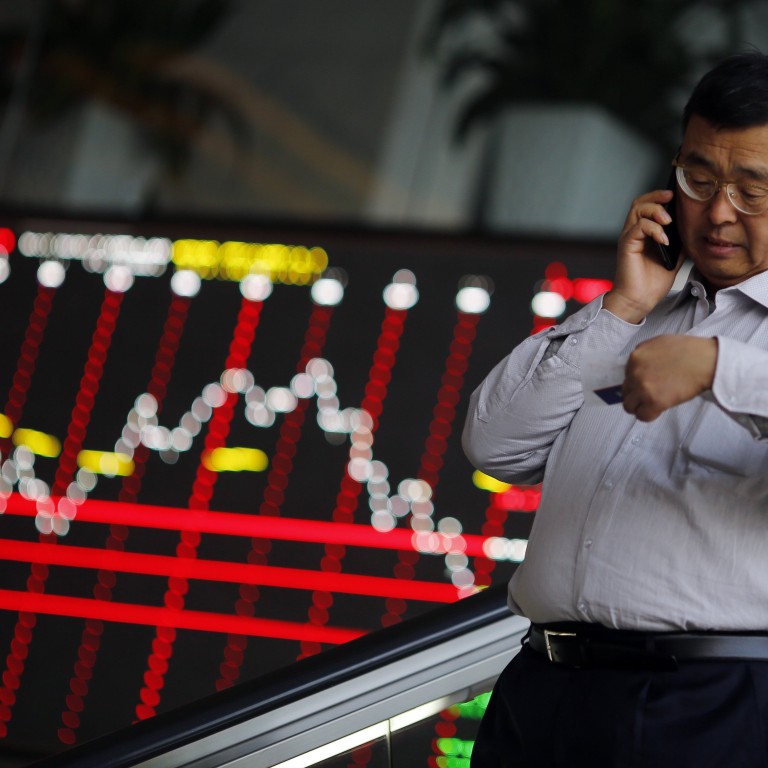
Update | Hong Kong shares shine by midsession on fund flows, Chinese stocks ease
Hong Kong’s bourse outshone Chinese stocks by midday on Wednesday morning, as foreign funds flowed in while investors cut their positions on mainland stocks.
The Hang Seng Index rose 0.74 per cent or 203.99 points to 26,670.71 points by the midday break on Wednesday although the Hang Seng H-shares Index, where mainland Chinese share hold more sway, fell 0.54 per cent or 76.93 points to 14,124.7 points.
The Shanghai Composite Index and Shenzhen Composite Index fell 1.02 per cent to 4,860.58 points and 0.92 per cent to 3,002.16 points respectively by midsession.
Part of the reason for the Hang Seng Index’s rise was the flow of overseas funds into the Hong Kong market to buy shares such as property counters, said Louis Tse, a director of VC Brokerage.
One property stock that did well was Cheung Kong Property Holdings, the property arm of Hong Kong’s richest man Li Ka-shing. On its first day of trading, Cheung Kong Property rose 6.21 per cent to HK$74.35 by Wednesday noon, with 45.95 million shares traded.
The Hong Kong stock market also drew inspiration from news that US Federal Reserve board member Lael Brainard said it may be impossible to raise US interest rates until the global economy improves in the strongest indication yet that the first rate increase by the Fed since 2006 will be delayed almost until year end or even later.
Hong Kong interest rates are tied to US interest rates, and a rise in US interest rates is expected to hurt sentiment in the market while a delay would likely boost Hong Kong market sentiment.
The mainland market lost ground in the last hour of the morning session with all major sectors down, said Gerry Alfonso, a director of Shenwan Hongyuan Securities.
“The volatility in the market might be too high for some investors, with some of them apparently taking gains after the recent rally. Investors seem to be trying to cut risk,” he said.
Financial stocks in the mainland and Hong Kong were also hurt by a policy on Certificates of Deposits (CDs) announced by the People’s Bank of China (PBOC) on Tuesday, said Alfonso.
PBOC, the country’s central bank, announced the launch of certificates of deposits (CDs) to be sold to individuals and non-financial companies. PBOC said this was another step towards the liberalisation of interest rates.
“This is likely to increase competition among banks in the short-term to attract deposits, but in the long term it will allow more efficient capital allocation. This development is likely to cause some short term volatility in the market and a positive long tem effect. As many banks are dual-listed, it should have a similar impact in the mainland market and in the Hong Kong market,” said Alfonso.
For example, China Construction Bank’s Hong Kong shares were the third most heavily traded Hong Kong stock on Wednesday morning, falling 0.9 per cent to HK$7.71 on turnover of HK$1.22 billion.
The bank’s Shanghai stock price fell 1.35 per cent to 6.59 yuan by midday.

